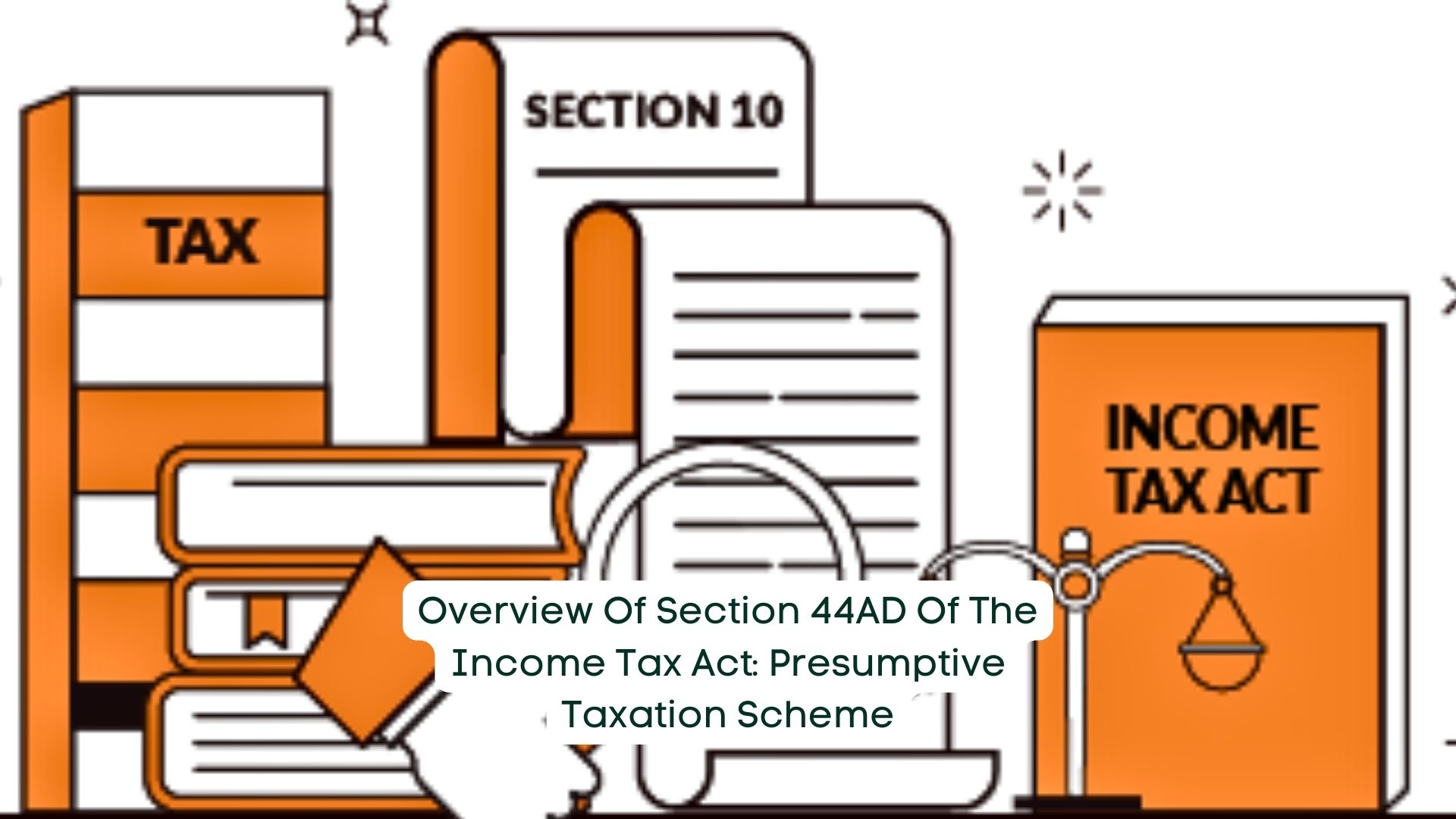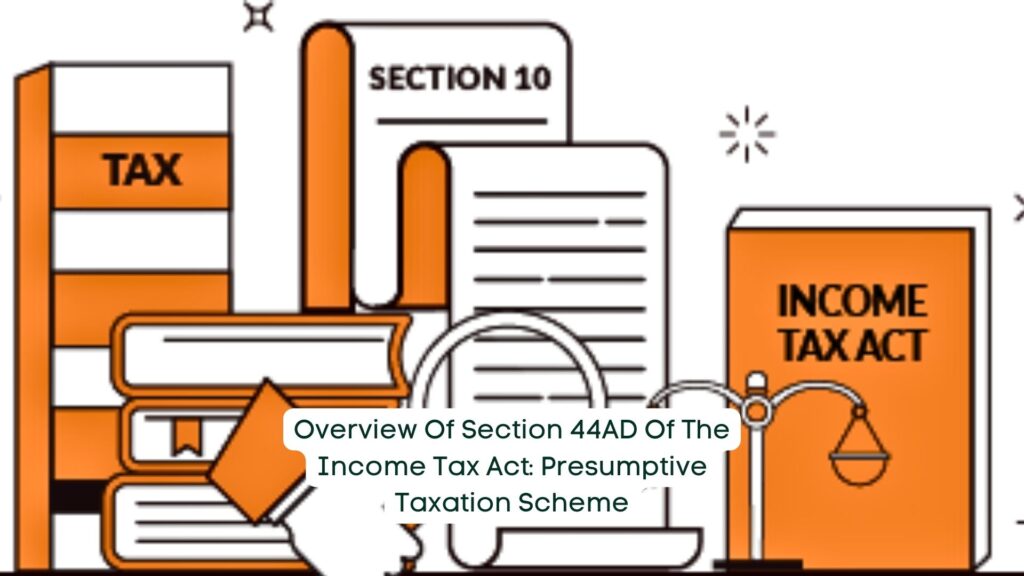
23 Feb Overview of Section 44AD of the Income Tax Act: Presumptive Taxation Scheme

The Indian government had enacted Section 44AD of the Income Tax Act to alleviate the tax burden on small taxpayers through a presumptive taxation scheme. This scheme applied to taxpayers engaged in any business other than those specified in Section 44AE, such as hiring, rent, or lease activities. As outlined in the 2021 Budget Review, Section 44ADA extended to all Indian resident assessees, including individuals, Hindu Undivided Families (HUFs), or partnership firms (excluding LLPs).
Understanding Section 44AD: Section 44AD offered tax exemptions to certain individuals and professionals, relieving them from audit requirements and extensive documentation. However, this provision did not cover assessees listed under Section 44AA.
The discretionary nature of Section 44AD aimed to ease the tax compliance burden for small taxpayers. Those eligible under this scheme were not mandated to maintain detailed account books or undergo audits. With recent revisions in the 2020 Budget, Section 44AD had also extended its benefits to professionals with total annual income below Rs 50 lakhs.
Key Features of Section 44AD:
- Tax liability was calculated at 8% of the total gross income for the financial year, provided the total profit was less than Rs 1 crore (increased to Rs 2 crore in the 2020 Budget).
- Applicable to any business or service except those specified in Section 44AE.
- Income assessed under this section was subject to the slab rates defined in the Income Tax Act.
- Assessees opting for this section could not claim additional deductions or allowances except for interest or payments made to partners.
Consequences of Exiting the Scheme Prematurely:
Once enrolled in the presumptive taxation scheme under Section 44AD, taxpayers were obligated to continue for five consecutive years. Failure to do so rendered them ineligible for the scheme for the subsequent five years.
Entities Ineligible for the Presumptive Tax Scheme:
While Section 44AD aimed to aid small taxpayers, certain businesses were excluded from its purview. These included payment businesses, rental or leasing of goods under Section 44AE, agency businesses, and those earning commission or brokerage income. Businesses with total turnover exceeding Rs 2 crore were also ineligible.
Declaration of Income under the Scheme:
Under the Presumptive Taxation Scheme, income was presumed at an 8% profit margin. However, if receipts were received via check, bank, or electronic clearing systems, the presumed income rate reduced to 6%.
If the actual business income fell below 8% of total receipts or profits, taxpayers were not exempted from maintaining account books. Conversely, if actual income surpassed the presumed income, taxpayers had the flexibility to declare higher income than the stipulated 8%.
Conclusion: To alleviate the compliance burden on small taxpayers, the government had introduced the Presumptive Taxation Scheme under Section 44AD of the Income Tax Act. This scheme relieved eligible taxpayers from maintaining detailed account books and audit requirements, thereby facilitating ease of tax compliance.


No Comments